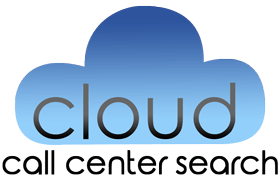Here’s What Your IT Staff Isn’t Telling You About Your CRM

Why? Many IT leaders want to stop CRM discussions before they start, because of the perceived challenges.
While optimizing your CRM for your industry needs has a huge impact on the success of agents and your bottom line, any shift from “business as usual” may feel like a daunting and unnecessary hurdle for your IT department to climb. Just ask IT!
That’s because they probably remember the last CRM project, and all the time and effort it took to implement and onboard that system. They probably also view the switch as a surrender of sorts, or a sunk cost. And let’s not forget the (reasonable) fear of transferring your current database into the new system.
While a measured outlook from IT is reasonable, you can’t allow this pessimistic view to hijack your ability to better serve your agents and your customers. Like we’ve said before, if you care about customers, you should care about technology.
Luckily, the challenges that come with switching to a better CRM are real but not insurmountable.
In this blog, we’ll show how the benefits of selecting a cloud-based CRM, built for your call center, far outweigh the concerns from IT.
Contact Center CRM vs. Salesforce CRM
Can there be life without Salesforce?
The CRM behemoth is certainly the 800-lb gorilla in the tech ecosystem that all other CRMs are judged against.
And while Salesforce can integrate into almost every conceivable industry, their system casts a mile-wide net while only going an inch deep into industry expertise. Yes, we are aware that they have healthcare-specific modules and other industry-specific builds but they are not “set it and forget it” builds, nor really is any of their implementations, and therein lies part of the problem.
For example, the Salesforce instance accessed by a medical device rep should not be indistinguishable from the CRM experience of an ecommerce retailer from a UI/UX standpoint. So converting the experience to match for your organization takes time and effort which equates to dollars and resources.
Whether your team was grandfathered into one of the larger CRM providers, or your IT team is simply hesitant to switch, don’t fall into the classic “Devil you know” trap.
By trusting an enterprise solution like Salesforce, you’re beholden to their long-term vision, and the changes that come with, including service costs, updates, and their priority integrations — not yours. Don’t forget that even though it can be customized for your environment, you will always have a second check to write to your Salesforce development partner because of this.
Luckily, there are plenty of cloud-based CRM technologies that focus on the needs of call center agents and customers. These systems target specific workflows to increase omnichannel efficiency while positioning their product roadmap to align with best-in-breed solutions. We are not saying these tools don’t require time and setup, but they are built for the contact center, not your sales and marketing team. The flexibility and low code designers make it much easier and more effective for your contact center practices.
Before you reflexively accept that the biggest is the best, or the most popular is the most profitable, you might want to ask how an industry-specific CRM might make life better for you AND your IT department.
The Total Cost of Ownership
A big brand CRM can be a comfort at first, with the assumption that your system is poised to tackle all challenges down the road. But that strength can quickly become a weakness if your vendor partner has a different vision for your technology.
Many business leaders forget the true cost of ownership with CRM.
It’s easy to anticipate the up-front costs of implementation and onboarding, as well as the annual licensing per user — these are clearly spelled out in the initial contract. But what is harder to budget for are the indirect costs that can pile up beyond control.
All CRMs require database maintenance, which could require an FTE to manage. That’s $100k added to your IT budget right there.
Also, as contact centers strive for more seamless omnichannel experiences, your CRM will require new features and integrations. That means costly custom development to build and test APIs that may have come turnkey from an industry-specific partner.
Unless you’re sure you’ll never change business rules, customizing enterprise CRMs can come at a high price. Instead, consider the cost benefits of a cloud-based solution that is built to play nice with the best-in-breed integrations your business needs.
Inflexible Partners Can Sabotage Contact Centers
While every prospective CRM partner will say “we want to be your partner,” call center leaders should go beyond this lip service and truly consider how well their CRM solution currently serves them.
Some vendors offer a one-size-fits-all product that was never built for the unique needs of call center agents, creating a greater strain on your IT staff that is now forced to troubleshoot and bootstrap solutions for end-users. If conflict arises between executing your business processes and your CRM’s functionality, your CRM has to be able to adapt.
Too many organizations are held hostage to a CRM, whether handcuffed to a contract obligation or fearful of losing valuable data.
There are much more flexible cloud-based solutions for contact centers to consider — and they’re much lighter on the wallet, too.
Give Your IT Staff a CRM They’re Happy to Talk About
A well-designed CRM can make all the difference for a call center organization. Don’t settle for technology partners that offer traditional CRMs that ignore your specific needs.
You need more than a name. More than a price tag. More than a liability.
Find a cloud-based CRM solution that is designed for the complexity and processes your agents navigate every day.
If convincing your IT staff that a CRM switch makes the most sense, our experts can simplify the conversation with a risk-free, no-cost consultation that will reflect the shared goals of your entire organization.




